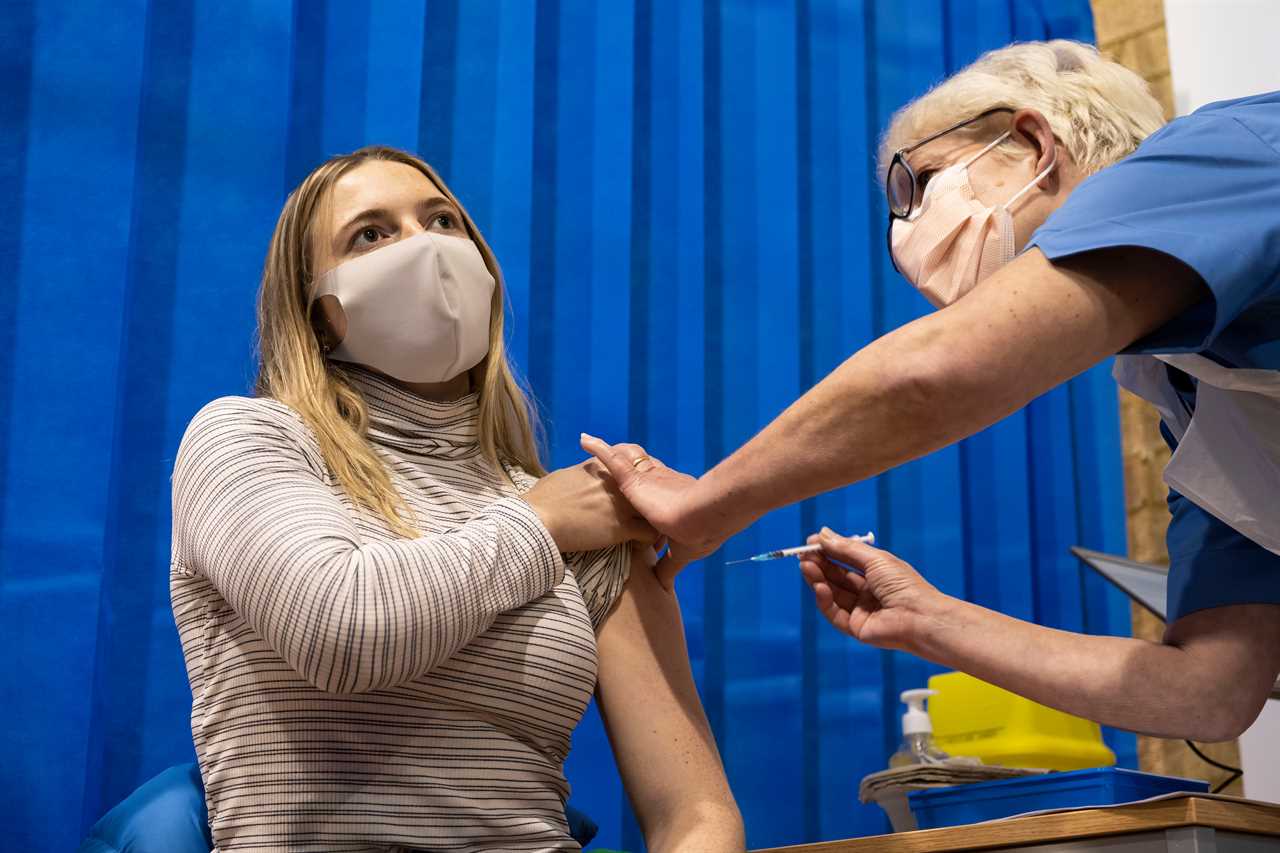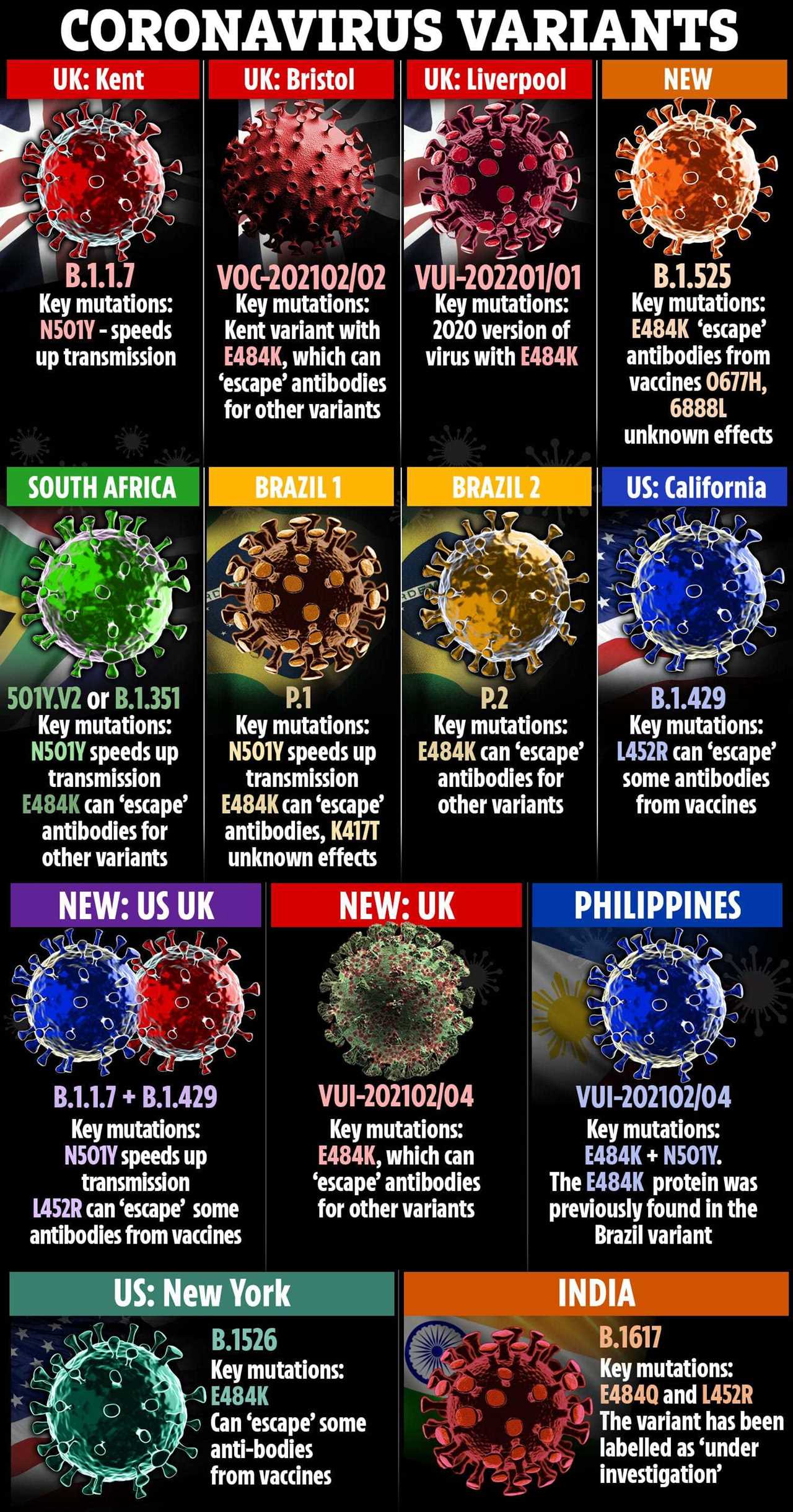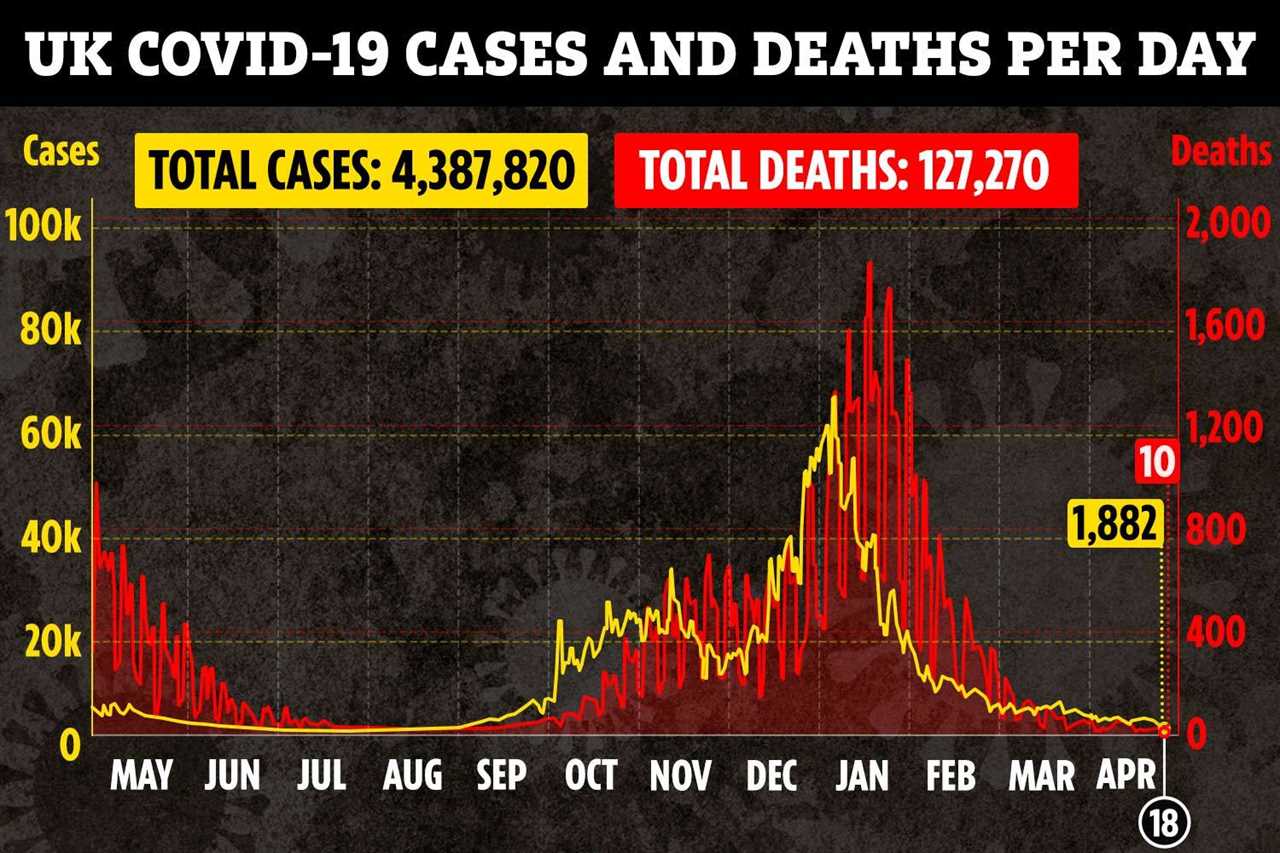CASES of South African and Kent Covid variants have been seen in already vaccinated patients, an NHS expert has warned.
Dr Susan Hopkins, chief medical adviser for Test and Trace, confirmed people had caught the mutated bugs despite being jabbed – but said the vaccines would still be effective.

Read our coronavirus live blog for the latest updates

She told the BBC’s Andrew Marr: “We have seen some people who have had their first dose of the vaccine who have had the South African variant and the variant that arose in Kent.
“That’s to be expected, we know that these vaccines aren’t 100 per cent protecting you against infection and that’s why we ask people to take caution.”
You can see that [the vaccines are] not as good against the South African variant as they are against our own [variant] B117 at preventing infection and transmission.
“[But] When your immune system is exposed to a variation of the same virus it responds faster and more adequately to protect you against severe disease.”
Getting full doses of a Covid vaccine does not mean you won’t catch the virus at all, although it significantly reduces your chances, but it does mean you are unlikely to suffer with a severe illness or die.
Some of the new Covid variants are able to evade immunity from jabs.
These include the South African mutation and the newly found Indian variant, of which there are now 77 cases in the UK.
It comes as cases of the South African variant have doubled in a month – sparking fears Covid mutations able to escape vaccines could delay Britain’s roadmap.
VARIANT WATCH
There are now 600 known infections, a rise on from 300 last month, according to Public Health England data.
Surge testing has been ramped up throughout England with more cases of the South African variant emerging.
London has seen a rise in cases, with tests deployed in Southwark as well as Wandsworth and Lambeth.
The Indiant variant has been labelled as “under investigation” along with six others in the UK.
There are also four “variants of concern” that are the most alarming, including from South Africa and Brazil.
No details were given about how the Indian variant, officially named B.1.617, entered the UK.

Dr Hopkins added that there isn’t enough data to officially classify the new Indian strain as a “variant of concern”, but investigations are ongoing.
She said: “We have seen a couple of cases (of the Indian variant) that haven’t arisen from travel but we’re still trying to undergo the investigations to look in great detail at where they might have acquired it from.
“To escalate it up the ranking we need to know that it is increased transmissibility, increased severity or vaccine evading, and we just don’t have that yet.
An expert warned the possible resistance to vaccines could “supper the UK’s escape plan” out of lockdown.
Professor Danny Altmann, a professor of immunology at Imperial College London, said he “suspected” the Indian Covid mutation would be escalated to a “variant of concern” as it could be evasive to any of the vaccines currently on offer.
But Professor Adam Finn, a member of the Joint Committee on Vaccination and Immunisation (JCVI), said he expected a “gradual erosion” of vaccine protection as the virus evolves but not enough to “scupper” the roadmap.
He said: “I also think that we know from other viruses and previous experience that the immunity that vaccines give won’t just disappear.
“It will be a gradual erosion. It won’t be back to square one. I would be really surprised if that happened. So, I think, possibly, that interpretation is a bit pessimistic.”








